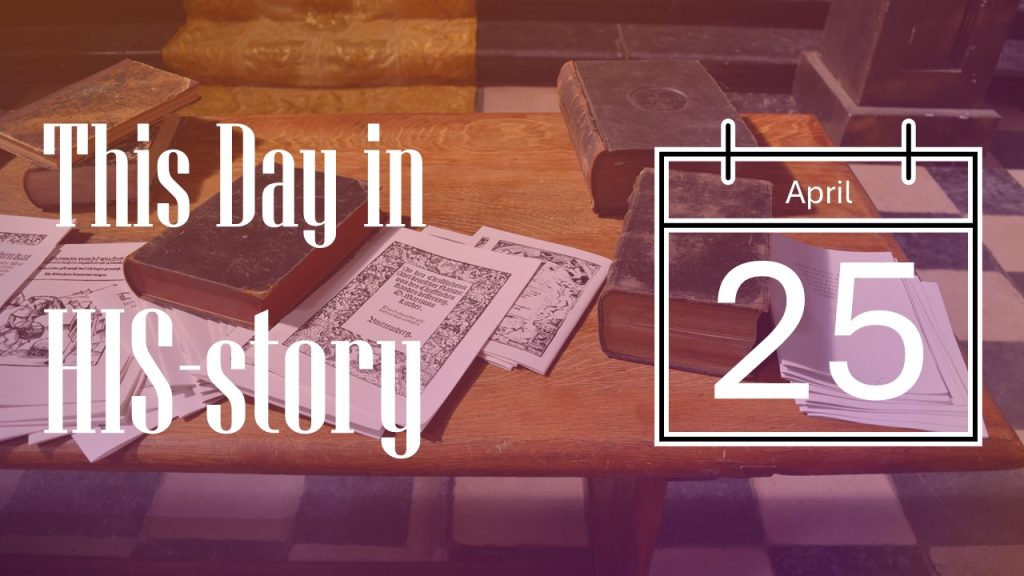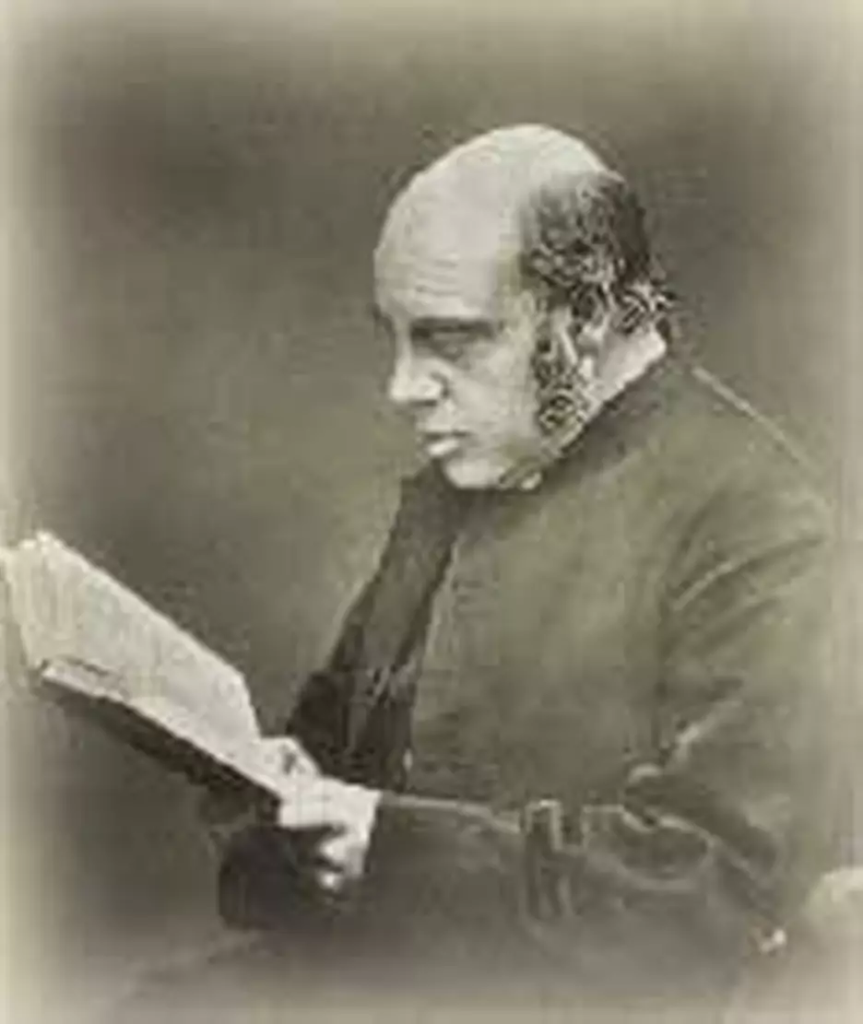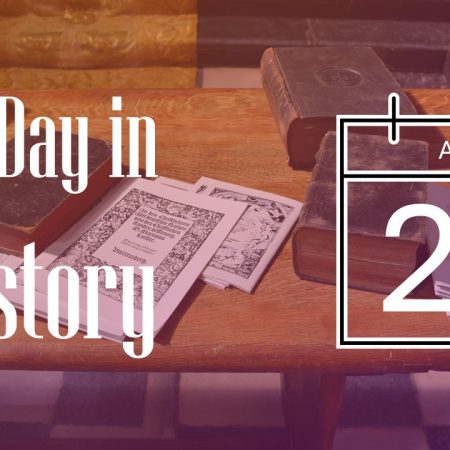
1735
Death at Epworth, England, of Samuel Wesley, curate, author, and father of Methodist revival leaders John and Charles Wesley.
1800
Death at East Dereham, Norfolk, England, of English poet William Cowper. Despite lifelong depression, he had produced enduring hymns, including, “Oh For a Closer Walk with God” and “There is a Fountain Filled with Blood.”

1879
Throughout church history, scoundrels have put forth many forgeries and false writings, claiming to be written by apostles or early church leaders. It is important for Christians that these works be identified for what they are. Many arguments about doctrine and church history could be settled if we knew which documents were true and which were false.
During the nineteenth century, Joseph Barber Lightfoot became the kind of scholar who could answer such questions. He was probably the greatest Bible scholar in England if not all Europe. After years of study, he was ordained as a priest in the Church of England. In 1861, he became Professor of Divinity at Cambridge College.

He had worked hard to master Greek and other Bible languages; and he knew the literature of the early church as few men have. What is more, he was recognized as a genuinely godly man.
In 1865, he issued a commentary on Paul’s letter to the Galatians. He followed this with other commentaries on Paul’s letters. He produced a study of the literature of the Apostolic Fathers. These fathers were men, such as Clement of Rome, who had personally known one or more of the apostles. He worked with great care to be sure that any conclusion he presented was accurate. As W. Robertson Nicoll remarked, “The unfortunate man who was too easily persuaded that he had made an end of supernatural religion was taken in hand by the Bishop and hewn in pieces. The lowered and abated tone of skepticism in our day, and the confidence of Christian apologists, is largely due to this victory. Among scholars it was acknowledged that Lightfoot knew more of the early Christian literature than any other man.”
Because of his outstanding scholarship, Lightfoot was asked to be part of a team that made the first ever official revision of the King James Version of the Bible. He worked on the New Testament. Altogether, the team made about 39,000 changes in the text of the English Version (most of them to accomodate changes in English). This work was finished around 1880.
When he was 61, J. B. Lightfoot made a dramatic change of career. He left college to become the bishop of Durham. This was not of his own desire. In fact, he was reluctant to take on this challenge, so different from the work he had been doing, but friends persuaded him he could do more good for the church and nation as bishop. He was consecrated on this day, April 25, 1879.
Not every scholar could step straight out of a college setting (where he has busied himself with abstract arguments and writing) and become a leader overnight. But Lightfoot did. Encyclopedia Britannica asserts that his work for social reform, fund raising and education made him one of the greatest Anglican bishops of the 19th century.
Undoubtedly this was because he practiced what he preached. At a speech to some clergymen who were being ordained, the Bishop said, “…let this be your one vow, your one prayer, ‘God helping me, I will do His work, because it is His work. God helping me, I will preach His truth, because it is His truth. I will not be discouraged by failure; I will not be elated by success. The success and the failure are not my concern, but His. God helping me, I will help my brothers and sisters in Christ, because they are my brothers and sisters. Do they spurn my advances? Or do they welcome my message? What then? It shall make no difference in me and my work. They and I alike are in God’s hands.’
